In Focus with Antonia Perry, part 2: House calls, gun class
In part two of a series about gun violence in Milwaukee, Antonia Perry and her sons learn about firearms and attend safety classes provided in a partnership between the city and community educators.
By Murv Seymour
July 21, 2025
Murv Seymour reports on gun violence in Milwaukee as a family learns about firearm safety.
VIDEO TRANSCRIPT
Murv Seymour:
You're listening to "In Focus" from PBS Wisconsin, your source for in-depth conversations about community, culture, and the people making an impact all over Wisconsin. I'm your host, Murv Seymour.
Antonia Perry:
We hear gunshots every night.
Murv Seymour:
The city of Milwaukee battles a challenge facing many big cities.
Quinn Taylor:
We have to take ownership of our communities.
Murv Seymour:
City officials there are trying to get a handle on gun violence.
Antonia Perry:
There's families going through this every day.
Murv Seymour:
Reckless gun violence is torturing communities.
Officer:
Today, one of our officers was shot.
Eddie Silas:
People think these bullets just go out to space. No, they do not. They go up and come down with enough force to kill somebody.
Murv Seymour:
The story I'm about to tell you of how gun violence impacts one Milwaukee mom will tug at your heart.
Antonia Perry:
It's very triggering.
Murv Seymour:
I'm Murv Seymour, the host of "In Focus."
Quinn Taylor:
The mission is to educate as many people as possible.
Murv Seymour:
In this special podcast edition of "In Focus," we take a closer look at gun violence in Milwaukee through the eyes of the city of Milwaukee, owners of a gun store and a single mom. They're all working together to lower gun violence. In part two of this special podcast episode, we get in focus and show you how the city of Milwaukee and owners of a local gun store answer a single mom's calls for help. We'll pick up the story from where we last left it. And that's from inside the home of Antonia Perry in Northeast Milwaukee.
Antonia Perry:
I feel horrible, like I'm the mom. This is my baby, this is my son, and I'm turning him into the police.
Murv Seymour:
So in episode one, we heard the agonizing story of how the single mom turns her teenage son over to the police after he breaks into her home, steals her gun and fires it with his cousin in the alley, just steps away from her back door. And on top of that, the kids videotaped the whole thing.
Quinn Taylor:
When I was growing up, there was this thing called the village.
Murv Seymour:
A big part of this story is about connection. Quinn Taylor is with the city of Milwaukee's Office of Community Safety and Wellness, and he connects the mom with the owners of Prolific Arms gun store, them being Theron Rogers and Eddie Silas. Now, it's worth mentioning they all attend Evolve Church in Milwaukee, which is how they all got connected in the first place.
Antonia Perry:
Eddie asked me if I would like to tell my story on PBS, and I was like, "Absolutely." And he was like, "Are you sure?" Like, "I don't wanna step over," you know, "overstep any boundaries. Is this gonna be okay for you? Is it gonna be hard?" And I'm like, "I can do it. I will talk because I'm not the only one going through this," and now we're here.
Murv Seymour:
Antonia treats this whole dangerous incident involving her son pretty much like a teachable moment. She wants other parents, other teens, she wants anyone who hears her story to learn from it, because she knows that her story could have very well ended up being one of those stories you read about or see in the news that don't always have a happy ending. Ironically, here she is in the news, in the spotlight, openly sharing her story, and she's doing it in the spirit of wanting to help someone else. Antonia is doing something to make sure her story ends triumphantly and not tragically.
Antonia Perry:
There's families going through this every day. You see it on the news. The teenager that was playing with the gun, he accidentally shot himself. Let the kids know, I mean, not necessarily where it is, but how to be safe with a gun in the house. Come up with a plan.
Murv Seymour:
Antonia Perry tells me she's definitely learning through this emotionally draining ordeal. She says her faith has a lot to do with how she's handling all of this.
Antonia Perry:
My faith is very high in the Lord. Like, I hear him talk to me and I talk back. I have conversations with God. That's how strong my faith is. I believe that all of this is for a reason and we're gonna be all right.
Murv Seymour:
We've all heard the term "house calls" before, right? Or maybe I'm just dating myself again, back in my day. Yeah, house calls were things that doctors used to actually make. And by the way, you don't get to use the term "back in my day" unless you can go back to at least 1980, right? I mean, seriously, don't ask me why, it's just the rule. I had some whipper snapper say to me, "Yeah, back in my day," and I was like, "Back in your day, what do you mean, like 2015, 2014?" I was like, "Stop, you don't get to do that. You're not there yet." If you don't know what a house call is, it's exactly what it sounds like. If you were sick and you were too sick to be moving around and you simply weren't feeling well, back in the day, the doctors would actually come to your house and check on you. You didn't have to get out of bed, you could literally just lay there and the doctor or clinician would come up to you and diagnose you and whatever your illness was, they'd give you what you needed. I'm sure somebody out there still makes house calls. The owners of Prolific Arms go the extra mile to help treat inner-city neighborhoods that suffer with the most gun violence and they're educating gun owners in the same communities.
Theron Rogers:
As we're gonna start to go through the Home and Family Safety Plan survey.
Murv Seymour:
I sit in as Antonia takes part in the roughly one hour firearm safety assessment from Eddie Silas and Theron Rogers. They chat with her in her living room from the same table where I had met and talked with Antonia.
Eddie Silas:
You're comfortable with sharing your situation with your son. I want Theron to be informed about that.
Murv Seymour:
Eddie starts things off by making sure Antonia is up to talking about some of the things that she's been going through when it comes to being a gun owner, and to make sure she's comfortable in getting personal and honest about firearm safety.
Theron Rogers:
What do you think you could have done better to help prevent the situation that happened with your son?
Murv Seymour:
Once the assessment begins, Theron does most of the talking. Now as you listen, keep in mind that sit down safety sessions like this from Prolific Arms are available absolutely free for anyone who wants one. It doesn't cost a dime.
Eddie Silas:
And, again, by way of education, people think—
Murv Seymour:
Away from Antonia's house, Eddie and I chat sitting right in the center of their West Allis gun store, surrounded by every kind of gun you could imagine, handguns, rifles, assault rifles, you name it, they've got it all, and if they don't, they can get it for you. Eddie tells me the home safety house calls they do are a service to the community because it fits their overall mission to arm gun owners with information, resources, and education about guns and gun safety.
Eddie Silas:
So my thing is to breed responsibility in gun ownership. The mission is to educate as many people as possible because we want to see a safer Milwaukee. We haven't just a bunch of people running around with firearms without the means to educate themselves on the subject matter. And I think that is a large contributor to gun violence in the city of Milwaukee.
Murv Seymour:
Back at Prolific Arms, I asked Eddie Silas if he thought that hearing gunshots had become so common in some neighborhoods that some people have actually become desensitized to hearing them, to the point where they're not even bothered by it anymore.
Eddie Silas:
A lot of people in our community are walking around with PTSD and they don't know it. No, it's not okay to shoot in the air. No, it's not okay. Do you know that bullet can go up and come down with enough force to kill somebody, right? That has nothing to do with the situation that you have going on.
Murv Seymour:
I also wanted to know why owners who sell weapons care so much about how the community educates itself on the weapons it sells?
Eddie Silas:
We care about this because this is our community. We grew up here, our family's here, the people that we love, our friends, we've taken a lot of losses, right? We've taken on a bunch of losses ourself, whether it was through friends, family, and so on, due to gun violence. There's a bunch of people out here that can or have that same testament. The thing is if we put education there, we can alleviate a lot of the trauma that we as a community deal with.
Murv Seymour:
Back at Antonia's place, Theron digs in to learn more about how Antonia stores and protects her weapon.
Theron Rogers:
Handgun, rifle, shotgun or other?
Antonia Perry:
Handgun.
Theron Rogers:
Handgun. Over 50% of the guns stolen have been stolen from vehicles. The reason, and our theory behind that—
Murv Seymour:
The session itself is part assessment, but it's also all about education.
Theron Rogers:
It is vitally important that not only us, our youth get access to the education piece. One of the things we talk about—
Murv Seymour:
Even though her kids weren't around, Theron tells Antonia it's not uncommon for detailed assessments like this to be done in front of the whole family. The kids, the aunts, the uncles, the parents, the grandparents, the dogs, the cats, the goldfish, you name it. Prolific Arms and the city both teach for a home safety plan to work, whoever is living in a house with a gun, everybody in the house needs to be in on the plan for the plan to actually work.
Theron Rogers:
We have to give our children access to, in a controlled environment, not necessarily that firearm, but the education around that firearm.
Murv Seymour:
Quinn Taylor couldn't agree more.
Quinn Taylor:
If you are possessing a firearm in your house, it shouldn't be a secret to those who's living there. But it should also be some requirements and some precautions with that firearm. When I was growing up, there was this thing called the village. And you had a community, you had neighbors. You could play outside where it was safe and you knew who was on your block. That village doesn't exist anymore. One of the reasons why we partner with organizations like Prolific is to rebuild that village.
Theron Rogers:
Have you already created an emergency safety plan that includes all family members?
Murv Seymour:
As I sit and listen to Theron school Antonia, I actually find myself learning with her. One of my biggest takeaways, having a home safety plan is as important as having a fire plan, a tornado plan, an active shooter plan, and so on. I learned gun owners and their families have to stay ready with their plan. Remember, this is Theron talking to Antonia during the home safety assessment.
Theron Rogers:
This is our plan, this is my role, this is your role, this is your role as it relates to these firearms in the house, as it relates to us being prepared for one day, right, if an intruder or somebody comes in our home. It's 3:00 AM in the morning. You hear banging at the door, banging at the door, then you hear a bang where the door comes in, it falls, you know someone's in my house. What do you do?
Antonia Perry:
I'm going to push that side button—
Theron Rogers:
Yep.
Antonia Perry:
To call 911—
Theron Rogers:
Okay.
Antonia Perry:
On my phone.
Theron Rogers:
Yep.
Antonia Perry:
And I'm getting my firearm.
Theron Rogers:
Okay. That's what I would do, yep.
Antonia Perry:
And I'm looking for my kids.
Theron Rogers:
Yep, okay. So everything you said there, that's what I would do. So that's what we do as the protectors of our home. We say, all right, I'm going to get my firearm, call 911 and I'm getting my kids, right? And that's our plan, but our kids have to be included in that plan 'cause one of the scenarios we talk about is this is all happening really fast and fluid. So if by the time I do all that and I'm looking for my kids and I don't see my kids, and I go downstairs and I see the bad guy and I want to engage that threat, and then my son or daughter runs in front of the bad guy because I had the plan, they weren't involved in the plan, what do I do? Right? So that's the part of the Family Safety Plan where we like to talk about the importance of including everybody because they need to know what to do and have assigned roles. Obviously, they're not going to go for the firearm.
Murv Seymour:
Back at Prolific Arms gun store, I had to ask Eddie Silas what are some basic things people should be thinking about safety wise when it comes to handling a gun? Here's his rapid fire answer.
Eddie Silas:
Rule number one was treat every gun as if it's loaded. Rule number two, never let the muzzle cross anything you're not willing to destroy. Rule number three is keep your finger off the trigger and outside the trigger guard until you're ready to fire. Rule number four is know you're target and what's beyond it.
Theron Rogers:
I know it's tough 'cause it's your son—
Murv Seymour:
Back at Antonia's house, Theron has more tough questions for the mom who volunteered to hear the cold, hard truth about what she could have done differently to keep her gun out of her son's hands. Keep in mind, her gun was stored and locked away in a lockbox, just like you're taught to do, and her teenage son still got his hands on it.
Theron Rogers:
Have family members been educated on firearm safety and the dangers of improper firearm use?
Murv Seymour:
Theron reminds Antonia about the importance and effectiveness of gun lock boxes for the home and for on the go. And if you've ever seen one, they're not that big, about the size of a small book and the perfect thickness to hold pretty much any handgun. And many are made of durable carbon fiber. Antonia already uses a biometric one. Once she attends a safety class, she'll get a free one on behalf of the city with a couple of keys that can be used at home, with checked bags on an airplane, pretty much anywhere. But more importantly, for the city of Milwaukee, it can be tethered inside her car, where Milwaukee police say most guns are stolen from in the city. Theron talks Antonia through how to use her new lockbox.
Theron Rogers:
And then you can secure it, take the key with you, right? And it's gonna be locked in the car. Pry-resistant, can withstand, once again 1,500 pounds of pressure, so what that means is they're not just using some knife, they're not just using some scissors. They gotta have some, you know, some heavy equipment, right, to be able to cut through this.
Murv Seymour:
If there was ever an ah-ha moment during this assessment, it's in Antonia's answer to Theron's question about whether she felt she could have done something differently to keep her gun out of her son's hands a couple of weeks ago before this home safety assessment. I want you to hear Antonia and Theron's interaction here.
Antonia Perry:
Just him not even probably knowing that I even have the gun or the safe.
Theron Rogers:
Okay, yeah.
Antonia Perry:
It's just him not knowing.
Theron Rogers:
Okay. I appreciate that answer. That's an honest answer and that's a real answer. And that is an answer that probably... And once again this is my opinion, about 90% of our community would give as far as a prevention method. Unfortunately that's not the right answer. And I want to empower you and help you get to a place where the answer I'm gonna suggest is probably more anxiety causing and stress causing.
Antonia Perry:
Removing the gun.
Theron Rogers:
Nope. Nope. Not even removing the gun. We have to give our children access to in a controlled environment, not necessarily that firearm, but the education around that firearm.
Antonia Perry:
Oh, right.
Theron Rogers:
One of the things we preach is education is the passport to the future, right? Ignorance isn't bliss. Ignorance is literally dangerous and can also cause death, right? So think about in this situation where ignorant to firearms, ignorant to firearm safety, and then sometimes not even ignorant, even more dangerous, because they aren't getting that education and feedback from us, where are they getting it from? TV.
Antonia Perry:
TV.
Theron Rogers:
Music, friends, right? Things of that nature. So then it is like ignorance it doesn't exist in the home, so they're getting it from somewhere. So because of that, then curiosity and no guidance.
Murv Seymour:
Theron tells Antonia the greatest weapon to protect people from gun violence is education.
Theron Rogers:
And I would suggest, moving forward, giving him access to the education piece.
Antonia Perry:
I also learned to educate the kids and not hide it from them. Educate them, let them know the safety around firearms and to not seclude them. Let them know that it is there and how dangerous it is if something was to happen, if they playing around with the gun.
Murv Seymour:
To learn more, Antonia agrees to take a refresher concealed carry gun safety course put on by Prolific Arms and partially sponsored by the city of Milwaukee in Quinn's office. Before she goes, Theron gives her one more piece of advice.
Theron Rogers:
When you come into the class, bring your teenage son, you know, bring your teenage daughter, nieces and nephews, right? Because once again, now it it's generating some conversation.
Murv Seymour:
The four-hour course is held at Evolve Church inside what's called their Teen Room, which hosts seminars, meetings, and other community events. On this day, the space hosts the second concealed carry gun safety workshop event of the year. Right now, they're holding classes like this about every three months. You can't see it, but every seat in this session is taken.
Eddie Silas:
If you are relying on a safety for your safety, that's a bad decision. You need to be your safety. The way that you actually—
Murv Seymour:
I sit in the back of the room as Eddie and Theron take a tag team approach to teaching their community about guns.
Theron Rogers:
Question number one. What is the first step in safely unloading a pistol?
Murv Seymour:
Just a few months into this program where the city encourages inner-city residents to learn about concealed carry laws and to learn about guns and gun safety, I asked Quinn why so many people are turning out for this class.
Quinn Taylor:
Community residents empowered with knowledge and information on how to safely store firearms, how to legally obtain a firearm, and then best practices on keeping that gun secure and out of harm's way. You have your regular blue collar individuals, you have mothers, you have fathers, you have even kids. You have everything that represents a community in this training. There is no such thing as being too young as it relates to safety at all, right? There's no such thing. The sooner the better because the healthier relationship you have or the earlier it starts, the healthier relationship you have with the weapon.
Murv Seymour:
Antonia Perry and her two boys are joined by almost 50 inner-city gun owners for this Saturday firearm safety course. She and her boys are right there in the front row.
Antonia Perry:
I didn't know you could take your kids with you, take your kids with you, it's free. Get the training, get the education. Don't be scared. Say something. Say something, like, you gotta say something. 'Cause if you don't, you never know what can happen. Just never know what can happen. And I'm never afraid to say anything. I'm never afraid to tell my story because it may help another family.
Quinn Taylor:
We've been able to train 150 members of the community in firearm education since the start of the year.
Theron Rogers:
Promoting firearm safety and education—
All:
Promoting firearm safety and education—
Murv Seymour:
Before the class ends, participants take part in what's called The Prolific Pledge.
Eddie Silas:
The Prolific Pledge is us getting the community to commit to the goal of safe firearm ownership and education and then them also continuing the education once they leave our class.
Antonia Perry:
We gotta go start being what they call 'em the Jehovah Witnesses, and walk door to door to get people to, you know, get they kids to these fire and safety classes. That'll cut down a lot of the incidences that's going on in our community.
Eddie Silas:
It's going to take, not just the Office of Community Wellness and Safety, not just Prolific Arms, but it's going to take all of community. It's going to take teachers, and it's going to take community leaders, politicians, it's gonna take everybody.
Murv Seymour:
On the next and final episode of this special podcast on gun violence in Milwaukee.
- Now you want to load the actual firearm, right?
Murv Seymour:
Antonia heads to the firing range.
Antonia Perry:
I've never had that chance to do that, 'cause I'm always in the house being the mother. I'm working, I'm going to school, I'm cooking, I'm cleaning, I'm taking care of the kids like I just haven't found time.
Murv Seymour:
That's coming up in this final episode of this special In Focus podcast about gun violence in Milwaukee.
Eddie Silas:
Anything can be going on. An intruder can be in your house right now.
Murv Seymour:
We'll see you next time. I'm your host, Murv Seymour. Thanks for listening.
Thanks for listening to In Focus. If you like listening to the show, please give us a like on Apple Podcasts or your podcast app of choice. It helps people find the show. For more news in civic affairs coverage from PBS, Wisconsin, visit us at pbswisconsin.org/news.
 Passport
Passport




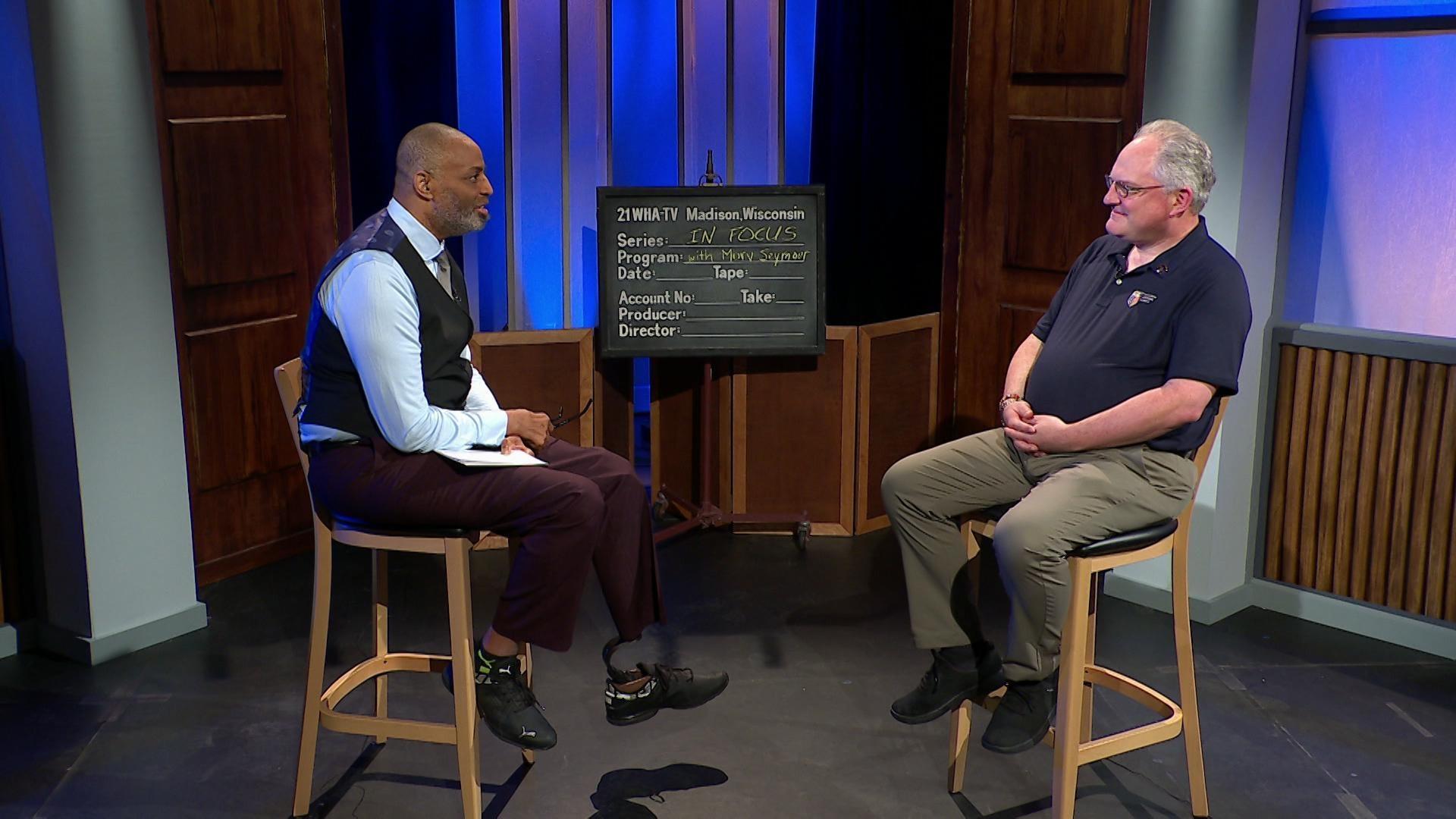
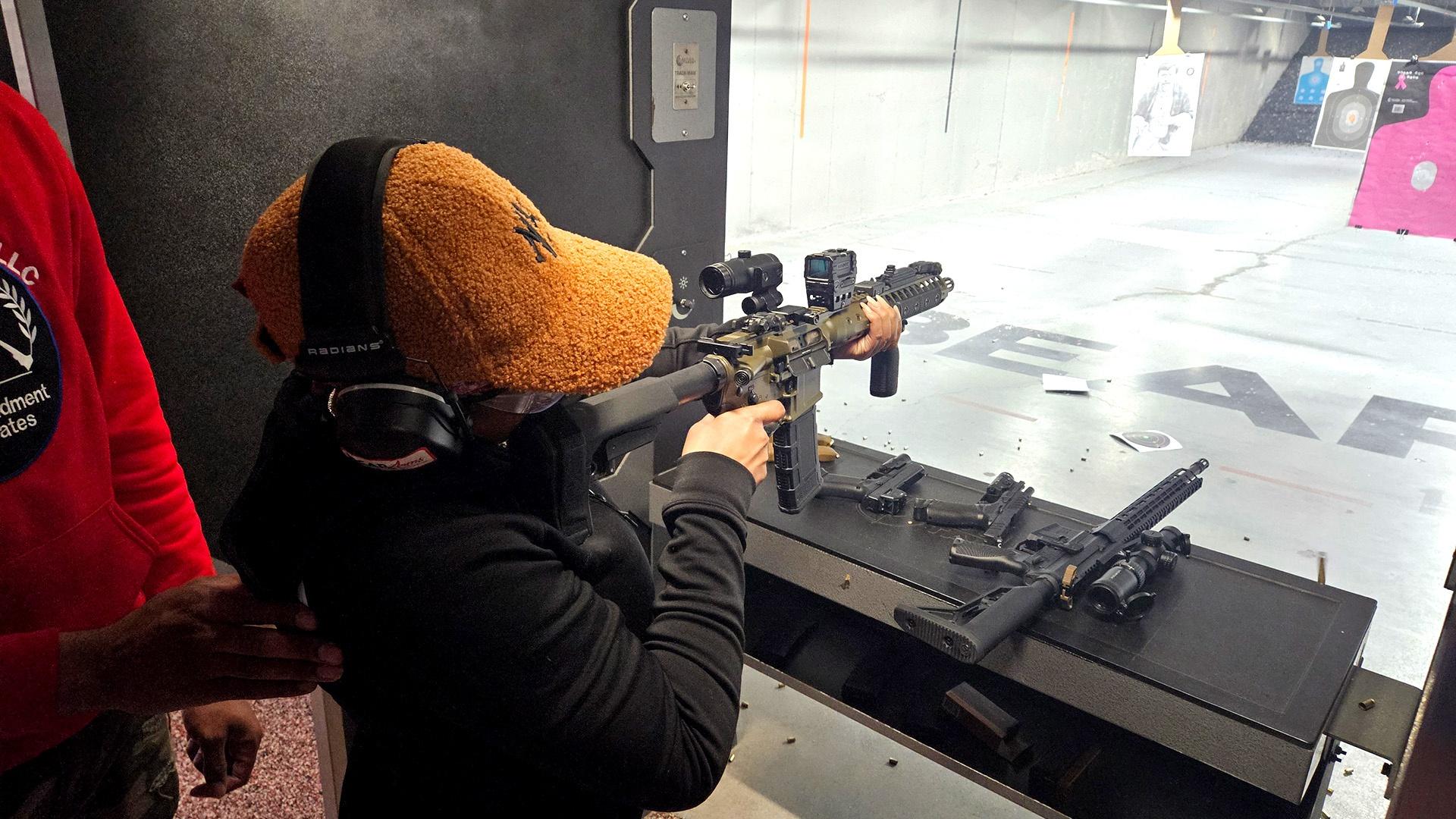
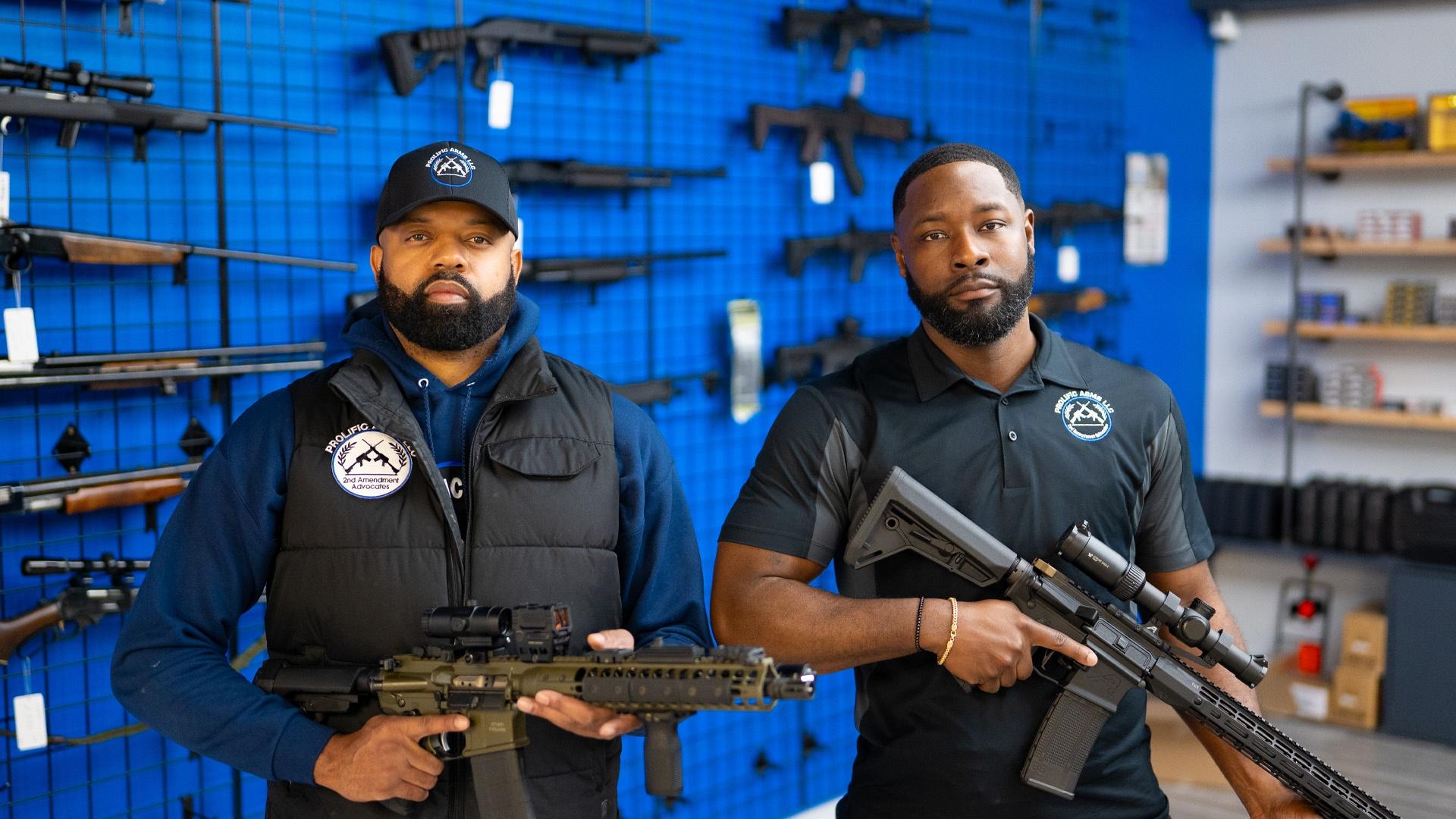
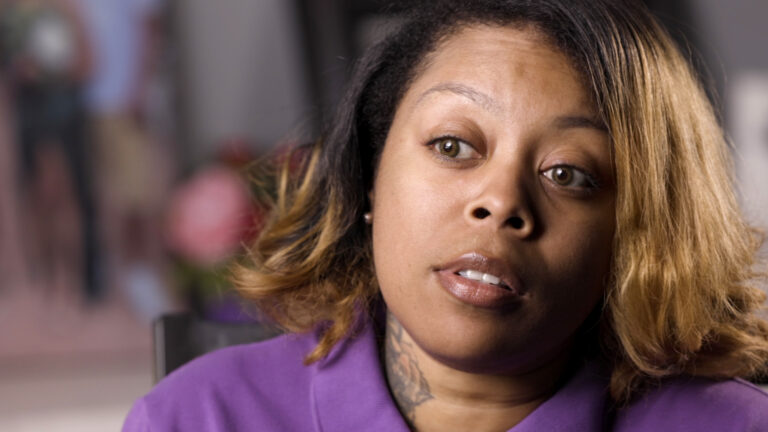
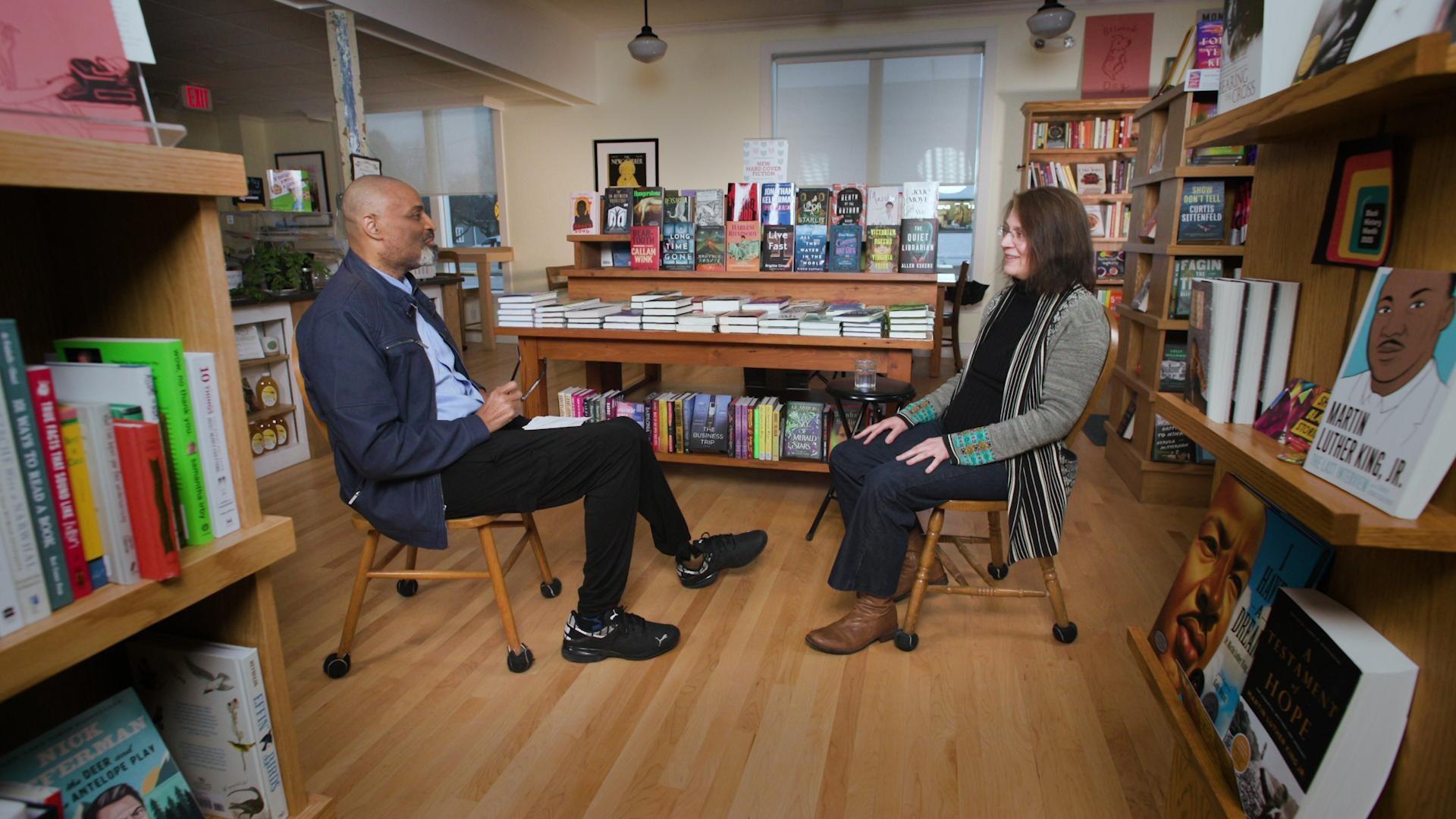
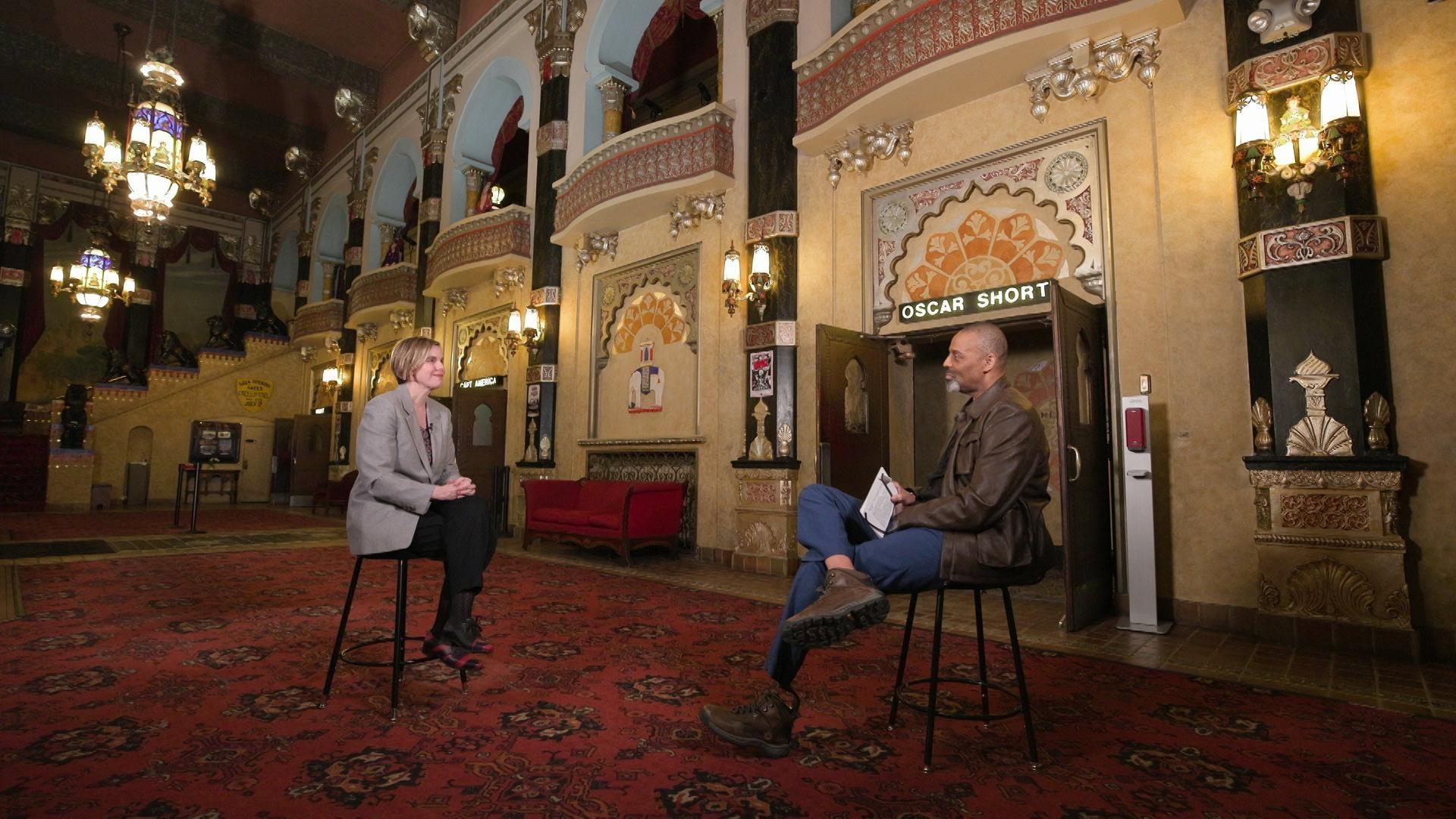

Follow Us